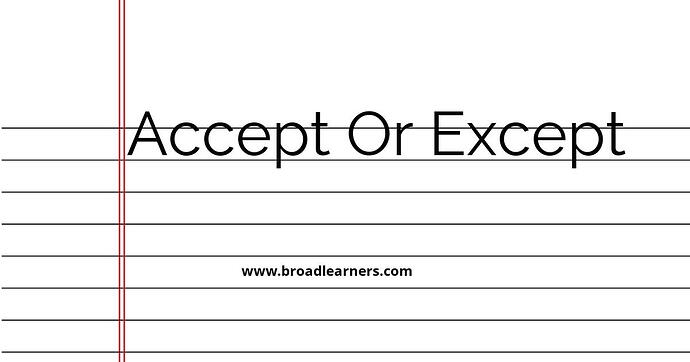'Accept' and 'except' are commonly confused words in English grammar. Understanding the difference between 'accept' and 'except' is important to use them correctly in written and spoken English.
'Accept' is a verb that means to receive or agree to something. It is used when someone agrees to take or receive something that is offered or given to them.
'Except' is a preposition or conjunction that means to exclude or leave out. It is used to indicate that something or someone is not included in a particular group or action.
Let's take a closer look at the meanings and usage of 'accept' and 'except'.
| 'Accept' | 'Except' |
|---|---|
| The word 'accept' is a verb that means to receive or agree to something. | The word 'except' is a preposition or conjunction that means to exclude or leave out. |
|
|
To remember the difference between 'accept' and 'except', it can be helpful to remember that 'accept' is used when someone agrees to receive or take something, while 'except' is used to indicate exclusion or leaving out.
Here are some examples of correct usage:
- I will accept your offer. (agreeing to someone's offer)
- All the students except for one passed the exam. (excluding one student from the passed category)
- She accepted the award with gratitude. (agreeing to receive the award)
- Everyone is going to the party, except for Tom. (excluding Tom from the list of party attendees)
Remembering the correct usage of 'accept' and 'except' will improve your grammar and communication skills.
